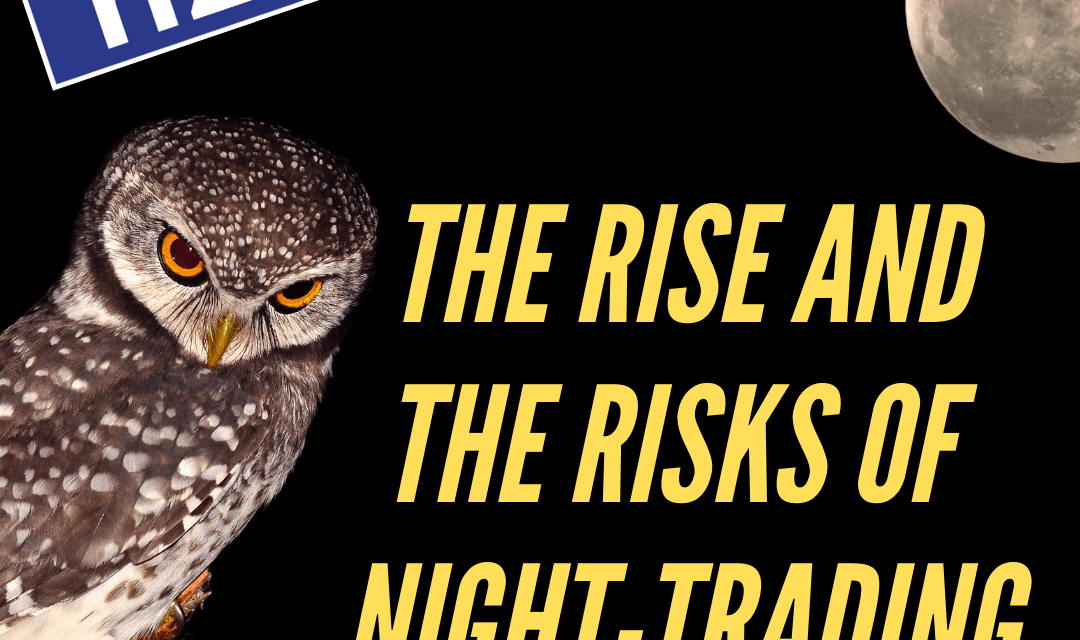Professor Ananish Chaudhuri of the University of Auckland has made a career out of building games to test out economics theories. His most recent research looks into the impact of sleepiness on the behaviors of the growing class of ‘night traders’. Our podcast digs into trading, investing, the differences, and why, above all else, the most critical investment strategy is actually to have a strategy n the first place.
The Rise and The Risks of Night Trading
——————————————————
Professor Ananish Chaudhuri of the University of Auckland has made a career out of building games to test out economics theories. His most recent research looks into the impact of sleepiness on the behaviors of the growing class of ‘night traders’. Our podcast digs into trading, investing, the differences, and why, above all else, the most critical investment strategy is actually to have a strategy in the first place.
——————————————————
Would you consider it a good idea to hop behind the wheel with a few beers under your belt? What about trading stocks?
There’s plenty of evidence to show that drunk people are far more likely to underestimate the downside of a decision, which is a key reason why 16,000 New Zealanders still drink-drive every year. I sat down with Professor Ananish Chaudhuri from the University of Auckland to figure out why, and how these same risk management impairments people display when they’re inebriated, also extend to people who’re exhausted.
Years ago, Chaudhuri read a Forbes article looking into the rise of a particular new investor — the night trader. Armed with his understanding of how exhaustion impacts the likes of shift workers, he set out to learn whether people chugging red bulls late into the night trading stocks were ultimately doing themselves a disservice.
The resulting research, which asked uni students to trade at varying hours in the day (and night), had some intriguing results for a growing number of Kiwi traders.
“People who were sleepy made systematic mistakes,” said Chaudhuri. Even knowing how the game works, is not enough to inform participants well.
You would assume the old rule of thumb applies here – buy low and sell high. In reality, the opposite of this occurs. “They buy late in the game at high prices, and hold on to these stocks much later. So when the market crashes, they lose money.”
Not only that, but ‘alert people,’ those working at more optimal times, were intentionally taking advantage of the sleepy suckers.
One of the most interesting things to learn for investors reading about this study, is that it doesn’t make a difference if you’re playing with small or large sums of money. Even though the participants of the study were working with chump change, Chaudhuri says that risk taking habits with small sums are generally consistent when the same people are dealing with far bigger numbers.
Now this isn’t another safety announcement around what you should or should not allow your adult-children to do with their money. What we know is that there’s real value in what traders do (provides liquidity and price discovery etc). Some say trading can be a profitable exercise too (well at least at the start they say this). There’s two things I can say about this for certain about people who trade (and I include myself here!): They’re either going to get an expensive education or, they could lose money and end up just as dumb. As much as I don’t want people to lose money, I think there’s still more to be gained by investor experimentation than there is by staying away from trading.
_______________________________________________________________________
The NZ Everyday Investor is brought to you in partnership with Hatch. Hatch, let’s you become a shareholder in the world’s biggest companies and funds. We’re talking about Apple and Zoom, Vanguard and Blackrock.
So, if you’re listening in right now and have thought about investing in the US share markets, well, Hatch has given us a special offer just for you… they’ll give you a $20 NZD top-up when you make an initial deposit into your Hatch account of $100NZD or more.
Just go to https://hatch.as/NZEverydayInvestor to grab your top up.
________________________________________________________________________
Like what you’ve heard?
You can really help with the success of the NZ Everyday Investor by doing the following:
1- Tell your friends!
2- Write a review on Facebook, or your favourite podcast player
3- Help support the mission of our show on Patreon by contributing here
4- To catch the live episodes, please ensure you have subscribed to us on Youtube:
5- Sign up to our newsletter here
NZ Everyday Investor is on a mission to increase financial literacy and make investing more accessible for the everyday person!
Please ensure that you act independently from any of the content provided in these episodes – it should not be considered personalised financial advice for you. This means, you should either do your own research taking on board a broad range of opinions, or ideally, consult and engage an authorised financial adviser to provide guidance around your specific goals and objectives.
_____________________________________________________________________________





